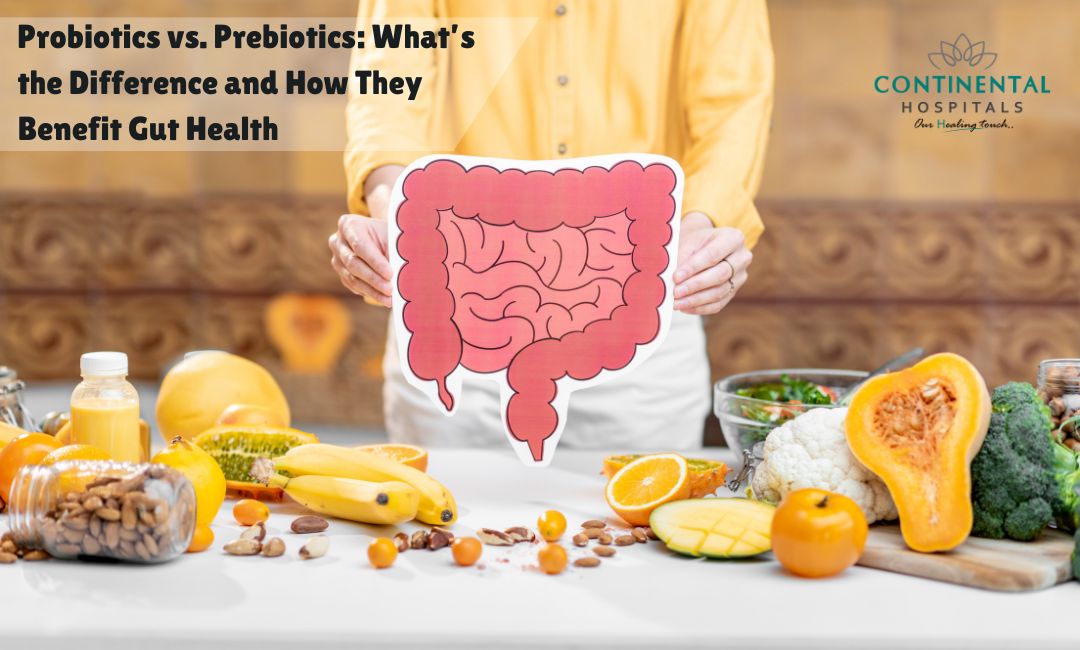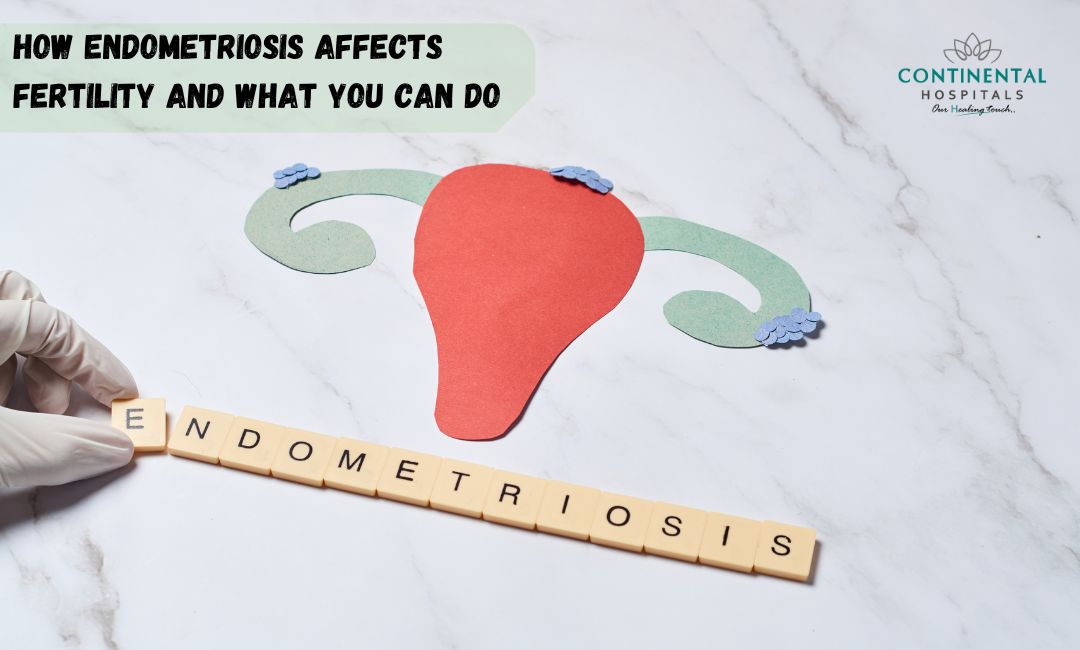When it comes to maintaining a healthy gut, two terms often come up: probiotics and prebiotics. While they sound similar and both contribute to gut health, they play very different roles. Understanding these differences can help you make informed choices about how to support your digestive system. In this blog, we’ll break down what probiotics and prebiotics are, how they differ, and how they benefit your gut health. Plus, we’ll explore treatment options available at Continental Hospitals for those seeking personalized digestive care.
What Are Probiotics?
Probiotics are live microorganisms, often referred to as "good bacteria," that provide health benefits when consumed in adequate amounts. These beneficial bacteria help maintain a healthy balance in your gut microbiota, which is the community of microorganisms living in your digestive tract. The primary function of probiotics is to promote a healthy balance of gut bacteria, which is crucial for proper digestion, a robust immune system, and overall well-being.
Common Sources of Probiotics:
Yogurt: Look for labels that say "live and active cultures."
Kefir: A fermented milk drink rich in beneficial bacteria.
Sauerkraut: Fermented cabbage that offers probiotics.
Kimchi: A Korean fermented vegetable dish.
Miso: A fermented soybean paste used in soups and sauces.
Probiotics are often recommended for conditions like irritable bowel syndrome (IBS), diarrhea, and certain infections. They work by restoring the natural balance of gut bacteria that can be disrupted by factors such as illness, antibiotics, or poor diet.
What Are Prebiotics?
Prebiotics are non-digestible fibers and compounds that serve as food for probiotics. Unlike probiotics, which are live bacteria, prebiotics are substances that help nourish and promote the growth of beneficial bacteria already present in the gut. By providing this nourishment, prebiotics help maintain a healthy microbiome and support various aspects of digestive health.
Common Sources of Prebiotics:
Garlic: Contains compounds that stimulate the growth of beneficial bacteria.
Onions: Rich in prebiotic fibers like inulin.
Bananas: Contain fructooligosaccharides (FOS) that promote gut health.
Asparagus: A good source of prebiotic fiber.
Chicory Root: Often used as a dietary supplement and in some foods.
Prebiotics can help enhance the effectiveness of probiotics, improve gut regularity, and support immune function. They are also beneficial for individuals with conditions like constipation or inflammatory bowel disease (IBD).
How Probiotics and Prebiotics Work Together
Probiotics and prebiotics have complementary roles in supporting gut health. Probiotics introduce beneficial bacteria into the gut, while prebiotics provide the necessary nutrients to help these bacteria thrive. Together, they create a harmonious environment that supports a healthy microbiome. This synergy can lead to improved digestion, enhanced immune response, and overall better health.
For optimal gut health, it’s often recommended to include both probiotics and prebiotics in your diet. This balanced approach helps ensure that the beneficial bacteria in your gut have the resources they need to grow and function effectively.
Benefits of Probiotics and Prebiotics
Probiotics:
Digestive Health: Help manage symptoms of digestive disorders like IBS and diarrhea.
Immune Support: Enhance immune function by promoting a balanced gut microbiota.
Mental Health: Emerging research suggests a link between gut health and mental well-being, with probiotics potentially influencing mood and cognitive function.
Prebiotics:
Gut Regularity: Improve bowel regularity and reduce symptoms of constipation.
Nutrient Absorption: Enhance the absorption of essential nutrients like calcium and magnesium.
Immune System: Support immune health by fostering a healthy gut microbiome.
Choosing the Right Probiotics and Prebiotics
When selecting probiotics and prebiotics, consider the following tips:
Probiotic Strains: Different strains of probiotics offer different benefits. For example, Lactobacillus and Bifidobacterium are common strains with proven benefits for digestive health. Look for products that specify the strains used.
Prebiotic Sources: Incorporate a variety of prebiotic-rich foods into your diet to ensure you get a broad range of benefits. Whole foods like fruits, vegetables, and whole grains are excellent sources.
Quality Matters: Choose high-quality supplements and foods that are free from additives and unnecessary ingredients. For probiotics, opt for products with a high number of live cultures and a proven track record of efficacy.
Integrating Probiotics and Prebiotics into Your Lifestyle
Incorporating probiotics and prebiotics into your daily routine can be simple and enjoyable. Here are a few ideas:
Start Your Day with Yogurt: Add a serving of probiotic-rich yogurt to your breakfast. Top it with fruits and nuts for added prebiotics.
Snack on Fruits and Vegetables: Keep prebiotic-rich snacks like bananas, apples, and carrots handy throughout the day.
Enjoy Fermented Foods: Include kimchi, sauerkraut, or miso in your meals to boost your probiotic intake.
Add Garlic and Onions to Your Dishes: These ingredients are excellent sources of prebiotics and can enhance the flavor of your meals.
Conclusion
Understanding the difference between probiotics and prebiotics is key to making informed decisions about your gut health. While probiotics introduce beneficial bacteria to your gut, prebiotics provide the necessary nourishment for these bacteria to thrive. Together, they play a vital role in maintaining a healthy digestive system and overall well-being.
Incorporating both probiotics and prebiotics into your diet can lead to better digestive health, enhanced immune function, and improved mental health. By making informed dietary choices, you can support your gut and, by extension, your overall health.
For more information or to schedule a consultation with our best dietician, visit Continental Hospitals.
.webp)







